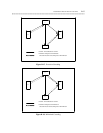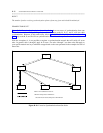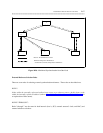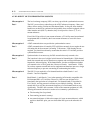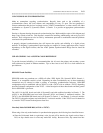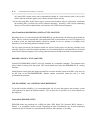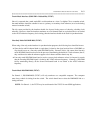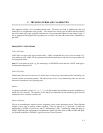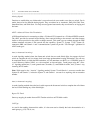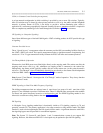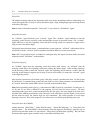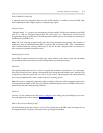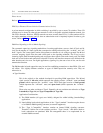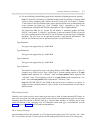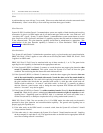C. TRUNKING TERMS AND CAPABILITIES
_ ______________________________________________________________________________________
_ ______________________________________________________________________________________
_ ______________________________________________________________________________________
This appendix contains a list of trunking-related terms. The terms are listed in alphabetical order and
should serve as a supplement to the glossary. Also included are several pages of tabular data that identify
the various trunk types, their signaling characteristics, and recommended options for the distant switch. A
list of suggestions and helpful hints regarding how to achieve the best end-to-end trunk compatibility is
provided.
FREQUENTLY USED TERMS
2-Wire Tie Trunk
AT&T does not support this type of trunk facility. AT&T recommends the use of 4-wire tie trunks. If 2-
wire trunks are used, AT&T will not guarantee transmission performance and will not accept trouble calls
involving these trunks.
Note: If 2-wire trunks are used, e.g., for connecting to a CENTREX switch, then the "WATS" trunk type is
recommended rather than CO.
4-Wire Tie Trunk
Traditionally, this term has been used to define those 4-wire private line trunk facilities connecting two
switches located on customer premises. The trunk consists of two 1-way transmission paths, one for each
direction of transmission, plus signaling leads.
Address
A sequence of numbers (usually a 3-, 4-, 5-, 7-, or 10-digit number) that identifies the station (telephone) to
which the call is directed. The specifics of the address are determined by the numbering plan used and
whether the call is an inside or outside call.
Address Signaling
The act of transmitting the address from the originating switch to the destination switch. Three different
methods can be used to perform address signaling. They are known as (1) dial-pulse, (2) dual-tone
multifrequency (DTMF or touch-tone), and (3) multifrequency (MF). Traditionally, either dial-pulse or
DTMF, depending upon equipment and administration details, has been used for PBX-to-PBX and PBX-
to-CO trunk connections, while MF is typically used on CO-to-CO trunks.
C-1



